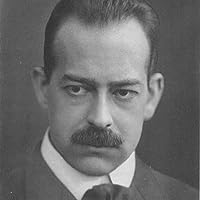Decline Quotes
Quotes tagged as "decline"
Showing 1-30 of 86

“Whereas it appeareth that however certain forms of government are better calculated than others to protect individuals in the free exercise of their natural rights, and are at the same time themselves better guarded against degeneracy, yet experience hath shewn, that even under the best forms, those entrusted with power have, in time, and by slow operations, perverted it into tyranny; and it is believed that the most effectual means of preventing this would be, to illuminate, as far as practicable, the minds of the people at large, ....whence it becomes expedient for promoting the publick happiness that those persons, whom nature hath endowed with genius and virtue, should be rendered by liberal education worthy to receive, and able to guard the sacred deposit of the rights and liberties of their fellow citizens, and that they should be called to that charge without regard to wealth, birth or accidental condition of circumstance.”
― Writings: Autobiography / Notes on the State of Virginia / Public and Private Papers / Addresses / Letters
― Writings: Autobiography / Notes on the State of Virginia / Public and Private Papers / Addresses / Letters

“One day the last portrait of Rembrandt and the last bar of Mozart will have ceased to be — though possibly a colored canvas and a sheet of notes will remain — because the last eye and the last ear accessible to their message will have gone.”
― The Decline of the West, Vol 1: Form and Actuality
― The Decline of the West, Vol 1: Form and Actuality

“For instance? Well, for instance, what it means to be a man. In a city. In a century. In transition. In a mass. Transformed by science. Under organized power. Subject to tremendous controls. In a condition caused by mechanization. After the late failure of radical hopes. In a society that was no community and devalued the person. Owing to the multiplied power of numbers which made the self negligible. Which spent military billions against foreign enemies but would not pay for order at home. Which permitted savagery and barbarism in its own great cities. At the same time, the pressure of human millions who have discovered what concerted efforts and thoughts can do. As megatons of water shape organisms on the ocean floor. As tides polish stones. As winds hollow cliffs. The beautiful supermachinery opening a new life for innumerable mankind. Would you deny them the right to exist? Would you ask them to labor and go hungry while you yourself enjoyed old-fashioned Values? You—you yourself are a child of this mass and a brother to all the rest. or else an ingrate, dilettante, idiot. There, Herzog, thought Herzog, since you ask for the instance, is the way it runs.”
― Herzog
― Herzog

“What can oppose the decline of the west is not a resurrected culture but the utopia that is silently contained in the image of its decline.”
―
―

“And the looks on the faces of my countrymenpassive heads bent arms at their trousers everyone guilty of not being their best of not earning their daily bread the kind of docility I had never expected from Americans even after so many years of our decline. Here was the tiredness of failure imposed on a country that believed only in its opposite. Here was the end product of our deep moral exhaustion.”
― Super Sad True Love Story
― Super Sad True Love Story

“Stat rosa pristina nomine, nomina nuda tenemos.”
― Scorn for the World: Bernard of Cluny's De Contemptu Mundi
― Scorn for the World: Bernard of Cluny's De Contemptu Mundi

“Poetry is what he turns to these days, finding in its fragmentation the proper echo of the disintegrating world.”
― Arcadia
― Arcadia

“Cavenaugh rubbed his hands together and smiled his sunny smile.
'I like that idea. It's reassuring. If we can have no secrets, it means we can't, after all, go so far afield as we might,' he hesitated, 'yes, as we might.'
Eastman looked at him sourly. 'Cavenaugh, when you've practiced law in New York for twelve years, you find that people can't go far in any direction, except-' He thrust his forefinger sharply at the floor.'Even in that direction, few people can do anything out of the ordinary. Our range is limited. Skip a few baths, and we become personally objectionable. The slightest carelessness can rot a man's integrity or give him ptomaine poisoning. We keep up only be incessant cleansing operations, of mind and body. What we call character, is held together by all sorts of tacks and strings and glue. ("Consequences")”
― American Fantastic Tales: Terror and the Uncanny from Poe to the Pulps
'I like that idea. It's reassuring. If we can have no secrets, it means we can't, after all, go so far afield as we might,' he hesitated, 'yes, as we might.'
Eastman looked at him sourly. 'Cavenaugh, when you've practiced law in New York for twelve years, you find that people can't go far in any direction, except-' He thrust his forefinger sharply at the floor.'Even in that direction, few people can do anything out of the ordinary. Our range is limited. Skip a few baths, and we become personally objectionable. The slightest carelessness can rot a man's integrity or give him ptomaine poisoning. We keep up only be incessant cleansing operations, of mind and body. What we call character, is held together by all sorts of tacks and strings and glue. ("Consequences")”
― American Fantastic Tales: Terror and the Uncanny from Poe to the Pulps

“I have the not altogether unsatisfying impression that civilisation is collapsing around me.
Is it my age, I wonder, or the age we live in? I am not sure. Civilisations do collapse, after all, but on the other hand people grow old with rather greater frequency.”
―
Is it my age, I wonder, or the age we live in? I am not sure. Civilisations do collapse, after all, but on the other hand people grow old with rather greater frequency.”
―

“How terrible old age was, she thought; shearing off all one’s faculties, one by one, but leaving something alive in the centre.”
― The Years
― The Years

“Everyone expected to die in debt, and had learned not to mind. It was just a fact of living in a country on the decline.”
― Bliss Montage
― Bliss Montage

“I know from life and from history something you have not thought of: often the outward, visible, material signs and symbols of happiness and success only show themselves when the process of decline has already set in. The outer manifestations take time - like the light of that start up there which may in reality already be quenched when it looks to us to be shining at its brightest.”
― Buddenbrooks: The Decline of a Family
― Buddenbrooks: The Decline of a Family

“I am a hearty soul bent on independence, yet if I refuse to bend such passion to God’s greater design my life will most certainly end up in a somewhat precarious decline.”
―
―
“He had arrived of course with certain preconceptions. We recall from his book list that Fritz had begun reading Oswald Spengler’s The Decline of the West in May 1920. That book had a scathing description of the in- habitants of “world-cities” like New York: “a new sort of nomad, cohering unstably in fluid masses, the parasitical city-dweller, traditionless, utterly matter-of-fact, religionless, clever, unfruitful, deeply contemptuous of the countryman and especially of that highest form of countryman, the country gentleman” (Spengler 1926, 32). Fritz anticipated finding his stay in New York “instructive and unpleasant,” and his first month there con- firmed his expectations. In his letters he offered up what he recognized were the standard European stereotypes about America: that “as is known from decades of stories” Americans are obsessed with making money; that American “culture,” to the extent that the phrase is not an oxymoron, is lowbrow; that the superlative (e.g., having “the world’s biggest building, fortune, beauty”—he wrote this in English) is both the preferred mode of expression and the only thing that makes Americans happy (Fritz to Aba, Apr 26, 1923). He informed his readers that one would have suspected that such images must be caricatures, until, that is, one had actually experienced them, as he had. He was glad, he went on, that he had made the decision to come, to have had the experience of seeing things firsthand. But in his opinion, living in the United Stated long term would be impossible for any European even to consider. It might be noted that this harsh initial opinion did not appear to dissipate much during his time there. In a summer letter to Mises, he remarked on “the vast intellectual superiority of the Europeans. This becomes evident in every-day life, its lack of intellectuality, its tastelessness and banality, which have a fatal effect and make it impossible to enjoy the comfort that is available here in contrast to Europe. [Most of the Europeans living here] agree that America is a country to earn one’s money but not one to live” (Hayek to Mises, Aug 17, 1923).”
― Hayek: A Life, 1899–1950
― Hayek: A Life, 1899–1950

“Such are the cellars over which the proud castles of tyranny rise and above which the aromas of their feast swirl: putrid caves of a gruesome kind in which the depraved rabble regales itself with the violation of human dignity and liberty for all eternity.”
― On the Marble Cliffs
― On the Marble Cliffs
“...it is plain that the proportion of celibates was high in the Roman empire and that the fall in the fertility of marriages was going on. It is the childless marriage, the small family system that contemporary writers deplore....'The human harvest was bad,' It was bad in all classes, but the decline was most marked in the upper ranks, the most educated, the most civilized, the potential leaders of the race.”
― Medieval People
― Medieval People

“In 1927, Robert Graves published a little book called *Lars Porsena or the Future of Swearing and Improper Language*. He noted a recent decline in the use of foul language by the English, and predicted that this decline would continue indefinitely, until foul language had all but disappeared from the average man’s vocabulary. History has not borne him out, to say the least: indeed, I have known economists make more accurate predictions.”
―
―

“З важкої промисловості в місті розвиваються лише супермаркети.”
― Господь симпатизує аутсайдерам. 10 книг віршів.
― Господь симпатизує аутсайдерам. 10 книг віршів.

“...Працювали на фабриках, що вже майже нічого не випускали, крім важких індустріальних стогонів.”
― Хто ти такий?
― Хто ти такий?

“As I watched my mental and physical health rapidly decline during a decade of working in high altitude professional astronomy, I became suspicious about the toxicity of the jobs and left the field to protect my long term health.”
―
―

“If you somehow believe that you can sort out the ‘rat’s nest' without removing the rats, you’ve denied the need of an exterminator and explained the state of the culture.”
―
―
“У кутку однієї з розлогих зал палацу Долмабахче стоїть незвичний годинник - одночасно і термометр, і барометр, і календар. Це подарунок султану від єгипетського хедива. На ньому навіть є напис арабською: «Нехай кожна Ваша хвилина буде варта години, а година - цілого століття». Здається, що це шедевр східної технології, окрім маленької дрібнички - годинник зробив австрієць Вільгельм Кірш. Годинник Кірша чудово підтверджує, що сам лише імпорт західних технологій не міг замінити внутрішньої османської модернізації. Турки потребували не нового палацу, а нової конституції, нової абетки і насправді нової держави.”
― Цивилизация: чем Запад отличается от остального мира
― Цивилизация: чем Запад отличается от остального мира

“If I call man a beast of prey, which do I insult: man or beast? For remember, the larger beasts of prey are noble creatures, perfect of their kind, and without the hypocrisy of human moral due to weakness.”
― The Decline of the West, Vol 2: Perspectives of World History
― The Decline of the West, Vol 2: Perspectives of World History

“The clouds and the shafts of skyscrapers against them were turning brown, like an old painting in oil, the color of a fading masterpiece. Long streaks of grime ran from under the pinnacles down the slender, soot-eaten walls. High on the side of a tower there was a crack in the shape of a motionless lightning, the length of ten stories. A jagged object cut the sky above the roofs; it was half a spire, still holding the glow of the sunset; the gold leaf had long since peeled off the other half. The glow was red and still, like the reflection of a fire: not an active fire, but a dying one which it is too late to stop.”
― Atlas Shrugged
― Atlas Shrugged

“Добре видима присутність політики сексуальної занепокоєності, мабуть, є чи не найяскравішою ознакою розпаду ліберальної демократії.”
― How Fascism Works: The Politics of Us and Them
― How Fascism Works: The Politics of Us and Them

“Is it not rather our experience that, while men are in health, their health is the last subject which preoccupies them; that is only when symptoms of age or decay begin to set in that that air their maladies for public inspection? The same reflections applies to the body politic: in the piping time of Victorian prosperity people did not talk about trade or employment- it would have been almost vulgar: nor did people exercise their minds over the continuance of our world-hegemony; they took it for granted. It is when the public mind becomes less easy on such topics that they are freely ventilated. If these analogies have any worth, it is difficult not to conclude that a society talks about religion more freely and more publicly when religion is beginning to die out. Like the enfeebled pulse or the dwindling exports, the empty pew begins, for the first time, to arrest our attention.”
― Caliban in Grub Street 1930 [Leather Bound]
― Caliban in Grub Street 1930 [Leather Bound]

“Завжди існуватимуть жадібні люди. Зрештою вони завжди там, де є (чи мали би бути) гроші. Але жадібні люди шахраюватимуть чи дозволятимуть собі недбало ставитися, лише якщо відчуватимуть, що навряд чи їхній злочин помітять, чи суворо покарають за нього.”
― The Great Degeneration
― The Great Degeneration
All Quotes
|
My Quotes
|
Add A Quote
Browse By Tag
- Love Quotes 97k
- Life Quotes 75.5k
- Inspirational Quotes 72.5k
- Humor Quotes 43.5k
- Philosophy Quotes 29.5k
- Inspirational Quotes Quotes 27k
- God Quotes 26k
- Truth Quotes 23.5k
- Wisdom Quotes 23.5k
- Romance Quotes 23k
- Poetry Quotes 22k
- Death Quotes 20k
- Happiness Quotes 18.5k
- Life Lessons Quotes 18.5k
- Hope Quotes 18k
- Faith Quotes 18k
- Quotes Quotes 16.5k
- Inspiration Quotes 16.5k
- Spirituality Quotes 15k
- Religion Quotes 15k
- Motivational Quotes 15k
- Writing Quotes 14.5k
- Relationships Quotes 14.5k
- Life Quotes Quotes 14k
- Love Quotes Quotes 13.5k
- Success Quotes 13.5k
- Time Quotes 12.5k
- Motivation Quotes 12k
- Science Quotes 11.5k
- Knowledge Quotes 11k




